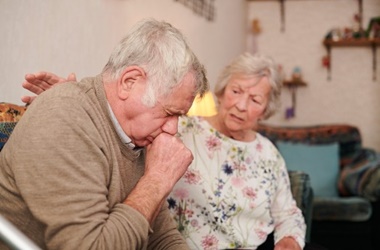GP practices told to cooperate to remotely monitor Covid patients’ oxygen levels

GP practices have been advised to work together to support the remote monitoring of coronavirus patients, in updated guidance aimed at dealing with local outbreaks.
Practices should consider remote monitoring using pulse oximetry ‘where available locally’ for patients with confirmed or possible Covid-19, NHS England said.
The new recommendations come as part of NHS England’s latest update to the GP standard operating procedures, and strengthen advice published in June regarding oximetry for monitoring Covid patients.
The updated SOP document said: ‘Practices should consider how they could work together to support remote monitoring of patients with symptoms of Covid-19; this work may need to be stepped up in response to increases in local prevalence of Covid-19.’
Another new paragraph in the document says: ‘Where available locally, consider the need for remote monitoring, using pulse oximetry, of patients with confirmed or possible Covid-19.’
The guidance clashes with advice set out for Welsh GPs, which only recommends face-to-face oximetry, but was welcomed by several GPs who have been using pulse oximetry to assess their patients with Covid.
Dr Sharon Raymond, a GP in London who leads a local pulse oximetry project, said it is ‘an important tool’, with remote oximetry ‘particularly necessary in light of the increasingly prevalent use of telemedicine in both primary and secondary care since the pandemic’.
She said: ‘With clear safety netting advice, which should be specifically tailored to individual patients, highlighting to patients under what circumstances they should contact either their GP, 111 or 999, it can help ensure that patients needing urgent or emergency care receive it in a timely manner.
‘And those who do not and are “worried well” remain home, thereby reducing the risk of spread of covid and pressure on stretched NHS resources.’
But Dr Raymond, who has worked on setting up a pulse oximetry loan service across London, said similar schemes were ‘urgently needed nationally so that every home in the UK has access to a pulse oximeter for monitoring of oxygen saturation levels if needed’.
She said: ‘I would urge NHSE to ensure that this infrastructure is in place across the country before the anticipated second wave of Covid-19 hits the country towards the end of this year.’
‘We also need a similar national system for the loan of oxygen concentrators for patients who develop Covid-19, but are cared for at home rather than go to hospital,’ she added.
Dr Lyann Gross, a North London GP who has been using remote pulse oximetry during the pandemic, said it can be ‘useful’, but added: ‘One concern about remote monitoring is that it is a snap shot in time and could be falsely reassuring and a short time later the saturations could fall. Thus leaving the monitor with patients doing serial readings is more useful alongside instructions on how and when to access help. This is what we have set up in Camden though our hot hub and via our rapid response team.’
Dr Sanjoy Kumar, GP in North East London, said: ‘At this present moment in time GPs do not have the equipment, infrastructure, personnel, time or funding to be in a position to deal with local outbreaks.
‘The system has just not set us up for that hand to hand combat. Not that we would shy away from it, we wouldn’t, but give us the tools to fight.’
And Dr John Allingham, medical secretary of Kent LMC, urged caution against relying solely on remote monitoring.
‘If we are making multiple decisions at arms length mistakes will be made,’ he said.
An NHS England spokesperson said: ‘Oximeters can help to spot quickly when people need to be re-admitted to hospital and are being trialled now across the country, as part of a package of NHS measures to help people to recover and stay well after Covid.
‘Patients will of course be closely supported – including being offered app-based checks with clinicians – to monitor their health, including assessing demographic factors like ethnicity.’
Advice for the public in Wales now asks anyone whose Covid-19 symptoms have not improved within seven days to contact their GP or NHS 111.
Announcing the news, Welsh CMO Dr Frank Atherton said he is ‘not advocating the remote monitoring of pulse oximetry at the present time’ due to evidence of its ‘limited’ clinical value.
Pulse voluntary donation scheme
Since the outbreak of this pandemic, Pulse has strived to support you, whether it be through our resources page, our ‘Clinical Crises’ series, holding policymakers to account with exclusives such as practices being supplied with faulty masks, or GPs being told to stop routine services in the hardest hit areas.
However, good journalism cannot be done on the cheap and, like the whole publishing industry, we have been affected by the economic slowdown. We also strongly believe the content we produce should remain free as we feel it is essential for you. Because of this, we have set up a voluntary donation scheme. There is no compulsion whatsoever to donate. But if you feel we are helping you, and you would like to support us, anything you can spare would be greatly appreciated. Read more here.
Pulse October survey
Take our July 2025 survey to potentially win £1.000 worth of tokens

Visit Pulse Reference for details on 140 symptoms, including easily searchable symptoms and categories, offering you a free platform to check symptoms and receive potential diagnoses during consultations.









